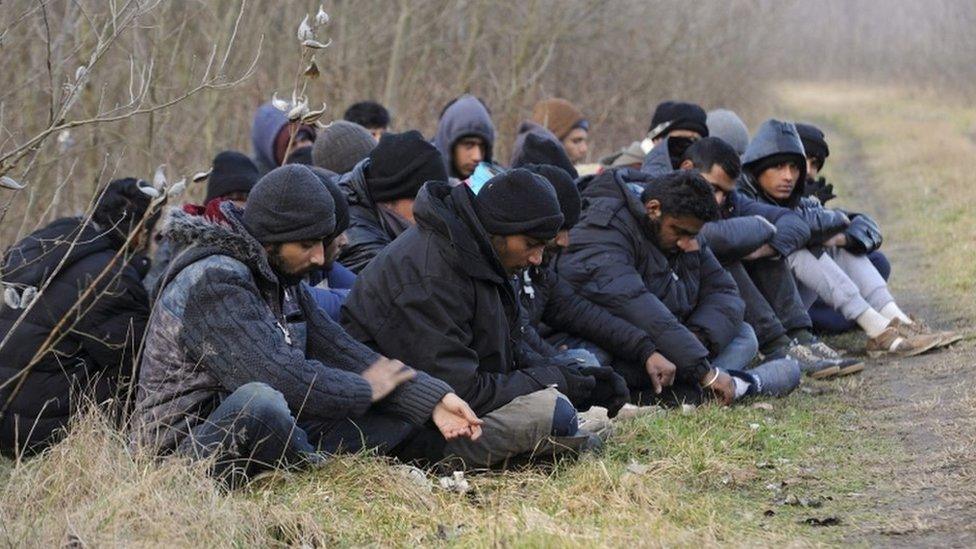Migrant crisis: Hungary police recruit 'border-hunters'
- Published
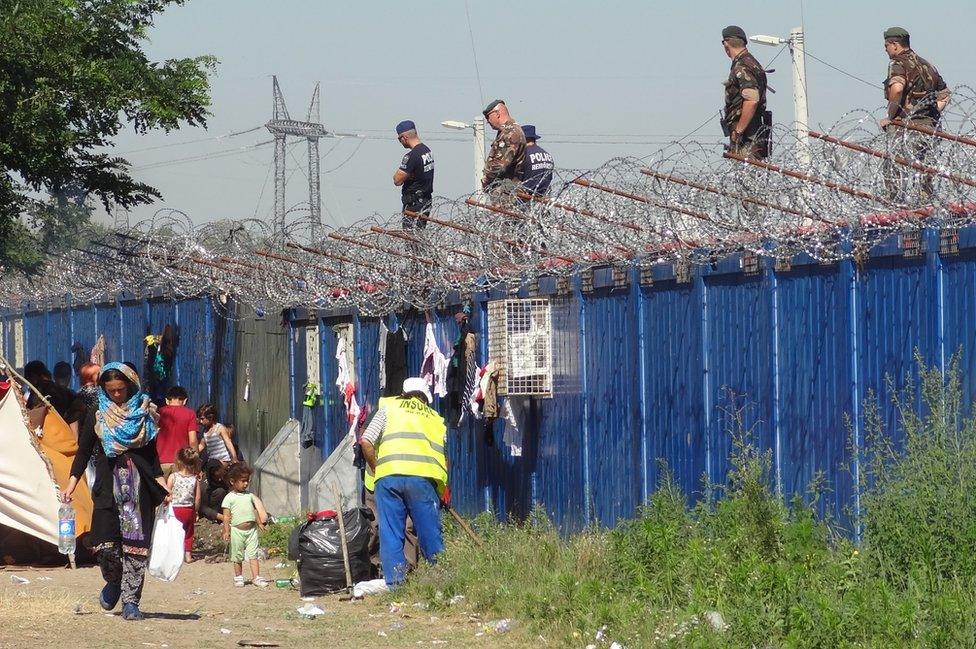
Border at Roszke: Hungary plans to build a second fence, citing security concerns
The Hungarian police are advertising for 3,000 "border-hunters", who will reinforce up to 10,000 police and soldiers patrolling a razor-wire fence built to keep migrants out.
The new recruits, like existing officers, will carry pistols with live ammunition, and have pepper spray, batons, handcuffs and protective kit.
The number of migrants reaching Hungary's southern border with Serbia has stagnated, at fewer than 200 daily.
The new guards will start work in May.
The recruits will have six months' training, they must be over 18, physically fit and must pass a psychological test, police officer Zsolt Pozsgai told Hungarian state television.
Monthly pay will be 150,000 forint (£406; $542) for the first two months, then 220,300 forint.
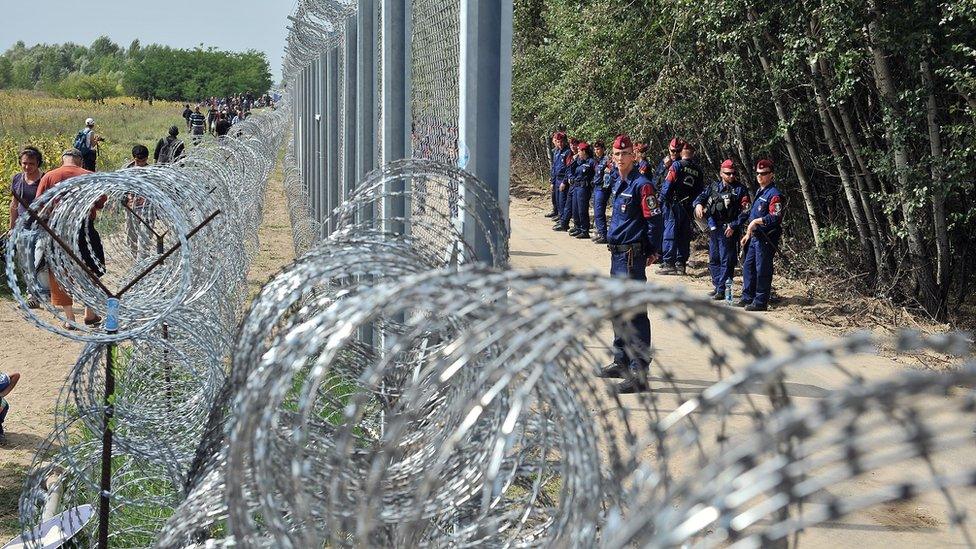
Hungary erected a 175km (110-mile) razor-wire fence last year to stop an influx of migrants
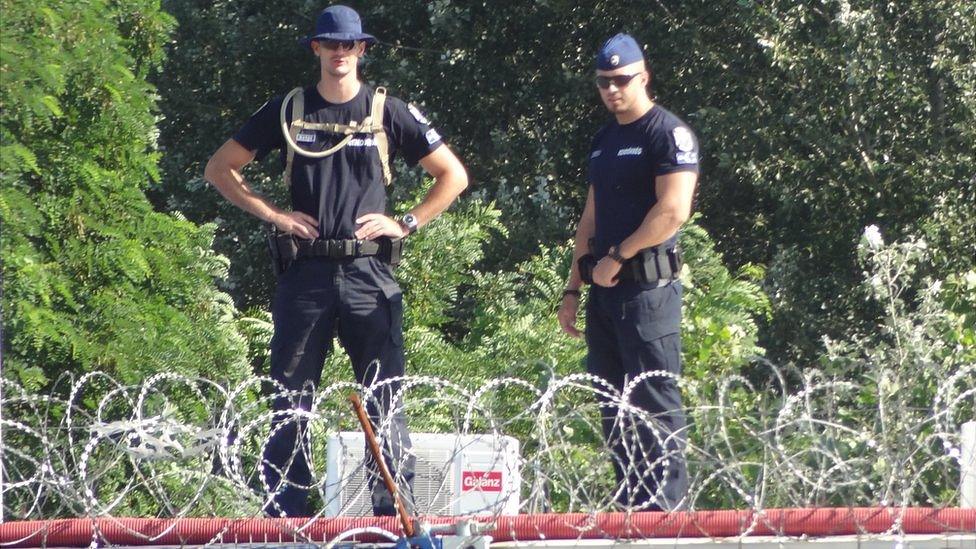
The UN has criticised Hungary's migrant push-backs at the border
Hungary is in the grip of a massive publicity campaign, launched by Prime Minister Viktor Orban's right-wing government ahead of a 2 October referendum.
Voters will be asked to oppose a European Commission proposal to relocate 160,000 refugees more fairly across the 28-nation EU.
Under the EU scheme, Hungary has been asked to take 1,300 refugees. The relocation programme is for refugees from Syria, Iraq and Eritrea.
Currently 30 migrants are allowed into Hungary each day through official "transit zones".
The number of those camped on the Serbian side of the border, next to the fence, waiting for access to the transit zones, fell to 346 at Horgos last week, and 103 at Kelebia. That is below half the total of a month ago.
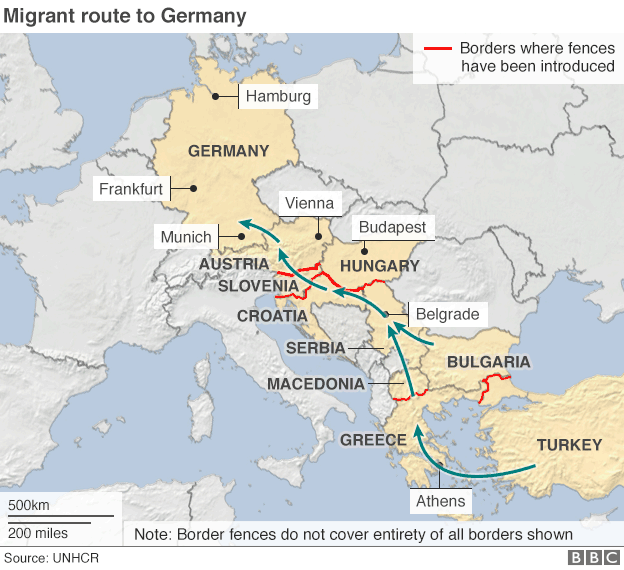

A note on terminology: The BBC uses the term migrant to refer to all people on the move who have yet to complete the legal process of claiming asylum. This group includes people fleeing war-torn countries such as Syria, who are likely to be granted refugee status, as well as people who are seeking jobs and better lives, who governments are likely to rule are economic migrants.
- Published26 August 2016
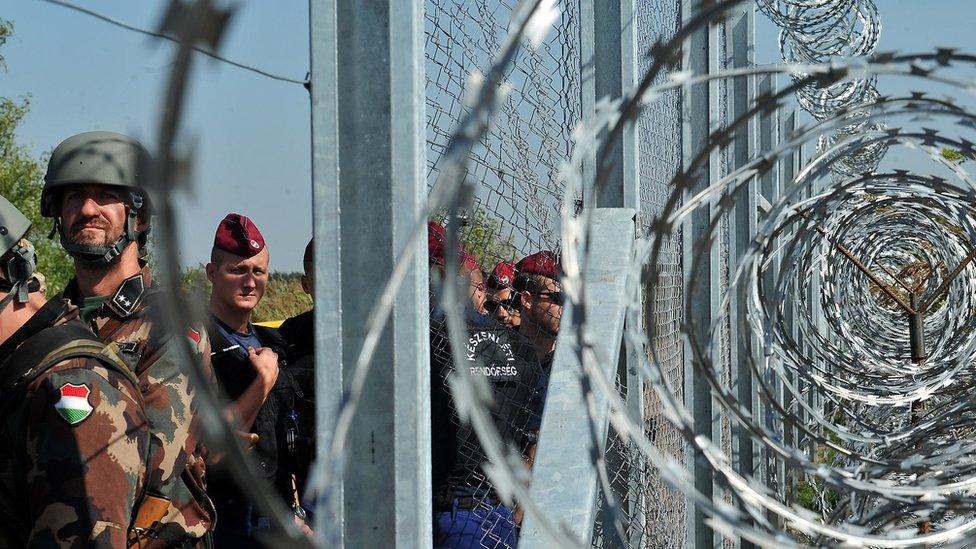
- Published14 July 2016
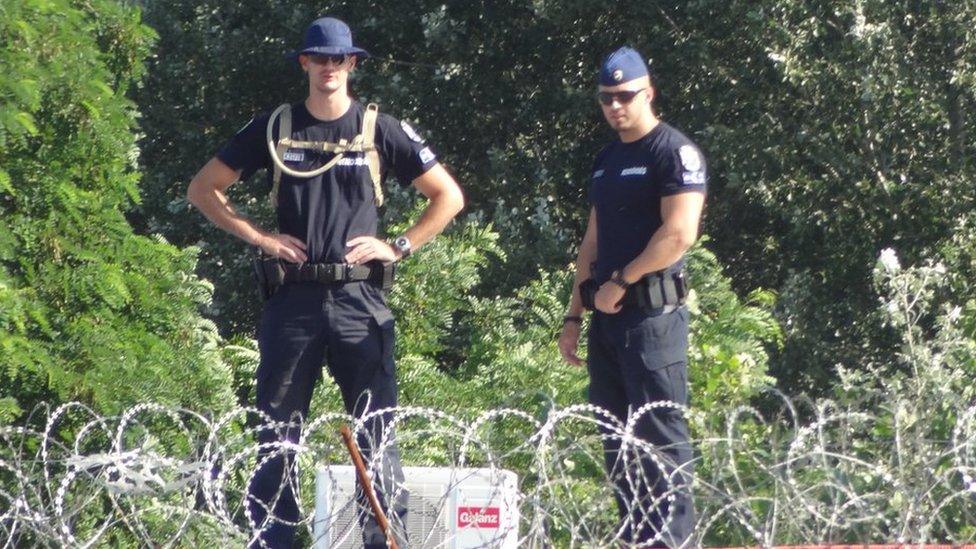
- Published9 July 2016
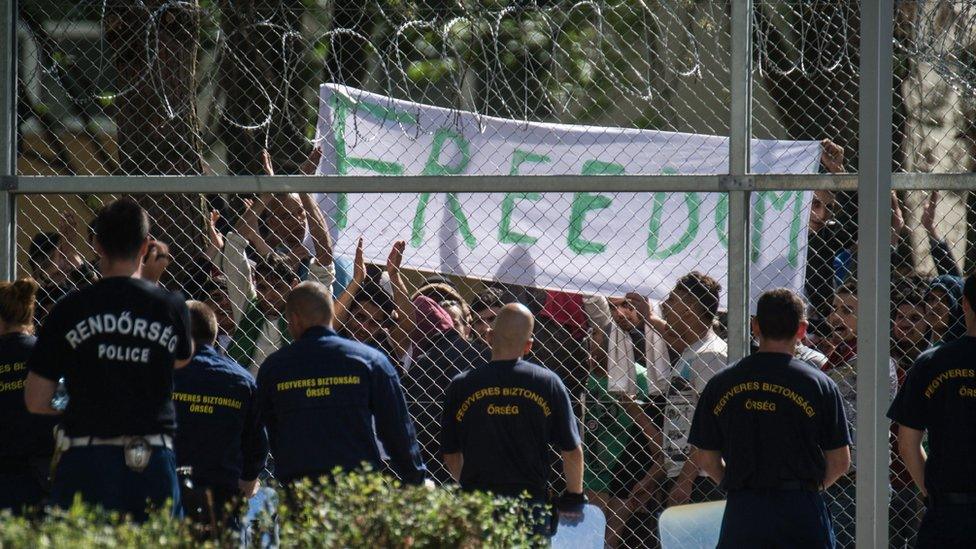
- Published21 February 2016
